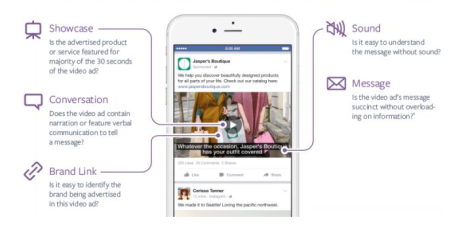Facebook admits it vastly overestimated video view lengths
Social media giant Facebook has admitted it has been overestimating the length of video views on its platform by as much as 80%, according to a report in the Wall Street Journal.
The paper cites a letter sent to Publicis Media in the US which admits the site had “overestimated average time spent watching videos by between 60% and 80%”.
On Friday David Fischer, the vice president of business and marketing partnerships, wrote a post explaining how the network had bungled the calculation for average view duration, and apologising to partners.



Crikey, completion rates and viewability on facebook are already appalling.
Reduce my view times by 60-80% and it’s safe to say nobody watches a damn thing!
In saying that, people will pour millions into FB each quarter because it’s Facebook and it’s great for last touch attribution.
We’re really sorry we conned you into spending millions of dollars making videos that no-one ever watches. It was an honest mistake, just like Saddam’s WMDs, which will turn up any day soon. PS You need to spend more on the next big thing too.
Meanwhile the entire population of the internet with ads and Flash disabled just lol and lol.
And this ladies and gentlemen is why third party independent measurement must be used for all forms of tracking online.
Will the Group M’s of the world be demanding refunds in the same way they hold AU publishers hostage over viewability?
Probably not, can’t upset Facebook.
Don’t belive the hype when the social platforms talk about integrations with Moat or IAS etc to put your mind at ease.
Check to see if the tags are actually firing on the page. I’ll take you out for a rib eye steak if you can find one.
I’ve read a couple articles and I am still not sure what the metric should have been and what it actually was. Can someone please clarify?
My understanding of the values is:
Play = All videos plays including = 3 seconds
View = Videos played >= 3 seconds.
And the metric in questions was:
Total Play time / Plays
when what FB did was
Total Play time / Views
Considering the metric is called Average Duration of Video Viewed,
should it have been:
Total View Time / Views?
Views and Plays… it’s all very confusing.
Hi Jimmy,
You’re right – Facebook should have been dividing total play time by number of plays – ie the total number of people who had seen the video.
They had been dividing total view time by plays – ie people who had viewed the video for more than three seconds.
Cheers,
Alex – editor, Mumbrella
Thanks Alex.
I’ve not seen an FB report, does that mean FB don’t include Total Play time and Total Plays and Total Views and Total View Time in their reports?
I find it hard to understand how this error was not picked up almost immediately.
There are errors or inconsistencies in a large percentage of tracking options and analytics.
This was a significant error but at least we know the likes of Facebook & YouTube will always fix a mistake if discovered which is why they are still best practice for views
Unfortunately the measure Facebook are changing it to is not of much use either in evaluating ad performance – would rather the new measure be time spent watching the video by people for more than 3 seconds divided by the views (i.e. 3 seconds or more). The people that watch for less than 3 seconds are irrelevant, they don’t count as a view, and we don’t pay for the view. This would also be smarter for Facebook to do that as would show better time viewed of the ad units and give a clear indication of the ad units performance i.e. cost per time viewed
Or atleast they should give both measures i.e. average time viewed of all plays, average time viewed of views
Average time viewed was already very weak on Facebook and now it is going to be hard to justify spend on their platform but am sure they will do ok